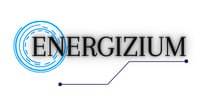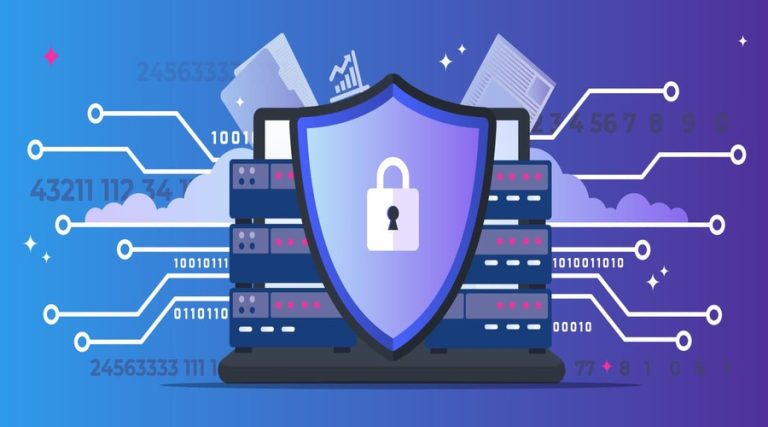
Decentralized Exchange and Token Standards: ERC-20, ERC-721, and Beyond
Decentralized finance (DeFi) has emerged as a disruptive force in the financial industry, offering innovative solutions that challenge traditional centralized systems. Central to the growth of DeFi are decentralized exchanges (DEXs) and token standards like ERC-20 and ERC-721. In this article, we will explore the concept of decentralized exchanges, token standards’ importance, and the advancements beyond ERC-20 and ERC-721. So, let’s dive in!
Introduction: The Rise of Decentralized Finance
In recent years, decentralized finance has gained significant traction, revolutionizing the way we interact with financial services. DeFi aims to create an open and permissionless financial system, eliminating intermediaries and providing greater financial inclusivity. At the core of DeFi lies the concept of decentralized exchanges.
Understanding Decentralized Exchanges
Defining Decentralized Exchanges
Decentralized exchanges, often referred to as DEXs, are platforms that facilitate peer-to-peer cryptocurrency trading without the need for intermediaries. Unlike centralized exchanges, which rely on a central authority to hold users’ funds, DEXs operate on smart contracts, enabling direct transactions between users. Decentralized exchanges, commonly known as DEXs, are platforms that enable peer-to-peer cryptocurrency trading without the need for intermediaries. Unlike traditional centralized exchanges, which rely on a central authority to hold users’ funds, DEXs operate on decentralized networks, such as blockchain technology. By leveraging smart contracts, DEXs facilitate direct transactions between users, ensuring greater transparency, security, and control over their assets. The decentralized nature of these exchanges eliminates the risk of single points of failure and provides users with autonomy over their funds. This democratized approach to trading has gained significant popularity in the realm of decentralized finance (DeFi).
Advantages of Decentralized Exchanges
Decentralized exchanges offer several advantages over their centralized counterparts. Firstly, they provide users with full control of their funds, eliminating the risk of exchange hacks or mismanagement. Additionally, DEXs enable greater privacy and anonymity, as users don’t need to disclose personal information to trade. Furthermore, decentralized exchanges foster financial inclusivity by allowing anyone with an internet connection to participate in trading activities.
- Enhanced Security: DEXs prioritize security by eliminating the need to trust a centralized authority with users’ funds. Instead, transactions occur directly between users’ wallets, reducing the risk of hacks, data breaches, or theft associated with centralized exchanges.
- Greater Privacy: DEXs prioritize user privacy by allowing individuals to trade without disclosing personal information. Users retain control over their data, reducing the risk of identity theft or unwanted surveillance.
- Reduced Counterparty Risk: With DEXs, users retain control over their private keys and funds. There is no reliance on a central authority to custody or hold assets, mitigating the risk of exchange failures, insolvency, or exit scams.
- Financial Inclusivity: DEXs promote financial inclusivity by enabling anyone with an internet connection to participate in trading activities. Users have access to a global marketplace, regardless of their location or background, empowering individuals who are unbanked or underbanked.
- No Geographical Restrictions: DEXs operate on decentralized networks, allowing users worldwide to trade without being restricted by geographical boundaries or regulations. This open and permissionless nature expands market opportunities and liquidity.
- Improved Market Efficiency: DEXs foster a more efficient market by reducing the reliance on order books and central order matching. Instead, decentralized exchanges utilize automated market-making algorithms, providing continuous liquidity and reducing the impact of large buy or sell orders on asset prices.
- Censorship Resistance: DEXs cannot be easily shut down or censored since they operate on decentralized networks. This resistance to censorship ensures uninterrupted access to trading, even in regions with strict regulatory environments.
- Transparent Transactions: All transactions on DEXs are recorded on the blockchain, offering transparency and auditability. Users can verify the integrity of transactions and ensure fair trading practices.
- Opportunity for Innovation: The decentralized nature of DEXs allows for experimentation and innovation in the development of new trading features, financial instruments, and decentralized applications. This fosters a dynamic ecosystem and drives the advancement of decentralized finance.
Overall, decentralized exchanges provide a secure, private, inclusive, and efficient trading environment, empowering individuals to have full control over their assets and participate in the decentralized finance revolution.

ERC-20: The Foundation of Tokenization
What is ERC-20?
ERC-20 is a widely adopted token standard on the Ethereum blockchain. It defines a set of rules and functionalities that enable the creation and interaction of fungible tokens. Fungible tokens are interchangeable and indistinguishable from one another, representing units of value.
Features and Benefits of ERC-20 Tokens
ERC-20 tokens have become the backbone of tokenization in the cryptocurrency space. They provide a common set of standards that ensure compatibility between different projects and wallets. ERC-20 tokens offer seamless integration with decentralized applications (DApps) and enable the development of decentralized finance protocols.
ERC-721: Non-Fungible Tokens (NFTs) and Unique Assets
Introducing ERC-721
While ERC-20 tokens focus on fungible assets, ERC-721 introduces non-fungible tokens (NFTs). NFTs represent unique assets, such as digital art, collectibles, and virtual real estate. ERC-721 tokens enable the ownership, transfer, and provenance tracking of these one-of-a-kind assets on the Ethereum blockchain.
Use Cases and Applications of ERC-721 Tokens
The rise of ERC-721 has sparked a wave of innovation in the digital art and collectibles space. Artists can tokenize their artwork as NFTs, providing verifiable ownership and enabling new monetization models. Additionally, gaming and virtual reality industries are utilizing ERC-721 to create unique in-game assets and virtual land ownership.
Beyond ERC-20 and ERC-721: Exploring New Token Standards
ERC-1155: The Multi-Token Standard
ERC-1155 is a token standard that combines the features of both ERC-20 and ERC-721. It allows the creation of both fungible and non-fungible tokens within a single contract. This flexibility opens up possibilities for more complex token ecosystems and reduces the gas costs associated with deploying multiple contracts.
ERC-777: Enhanced Token Functionality
ERC-777 introduces new functionalities to ERC-20 tokens, such as the ability to receive tokens directly and trigger custom actions upon token transfer. This standard enhances the user experience and simplifies the integration of tokens into various applications.
Other Emerging Token Standards
In addition to ERC-1155 and ERC-777, several other token standards are gaining traction in the blockchain space. Some of these include ERC-998 (composable tokens), ERC-1967 (upgradeable smart contracts), and ERC-223 (gas-efficient token transfers).
The Future of Decentralized Exchanges and Token Standards
Scalability and Interoperability Challenges
As the popularity of decentralized exchanges and token standards grows, scalability and interoperability become critical challenges. Ethereum’s network congestion and high gas fees have highlighted the need for scalable solutions that can handle a larger volume of transactions. Interoperability between different blockchains is also essential for seamless asset transfer and liquidity across multiple networks. Scalability and interoperability present significant challenges for decentralized exchanges (DEXs) and blockchain networks. Scalability concerns arise from the limited transaction processing capacity of blockchain networks, resulting in network congestion and high fees. This hampers the user experience and impedes the growth of DEXs. To address this, Layer 2 solutions like rollups and sidechains are being developed to offload transactions from the mainnet and increase scalability. Interoperability, on the other hand, focuses on enabling seamless asset transfer and communication between different blockchain networks. Currently, most DEXs operate within a single blockchain ecosystem, limiting liquidity and trading opportunities. Cross-chain compatibility protocols and technologies are being pursued to overcome this challenge and foster a more interconnected decentralized financial landscape.
Layer 2 Solutions and Cross-Chain Compatibility
To address scalability concerns, Layer 2 solutions like rollups and sidechains are being developed. These solutions aim to reduce the load on the Ethereum mainnet by processing transactions off-chain and settling them on-chain periodically. Additionally, projects are working on achieving cross-chain compatibility, allowing assets to move freely between different blockchain networks.
Conclusion
Decentralized exchanges and token standards have revolutionized the way we interact with digital assets and financial systems. ERC-20 and ERC-721 paved the way for tokenization and NFTs, opening up new opportunities for creators and investors. Looking ahead, emerging token standards like ERC-1155 and ERC-777, coupled with scalable and interoperable solutions, will continue to shape the future of decentralized finance.
FAQs (Frequently Asked Questions)
- Q: How do decentralized exchanges ensure security? A: Decentralized exchanges rely on smart contracts and blockchain technology to ensure security. By eliminating the need for a central authority to hold funds, the risk of hacks and mismanagement is significantly reduced.
- Q: Can I trade any cryptocurrency on a decentralized exchange? A: Most decentralized exchanges support trading a wide range of cryptocurrencies. However, the availability of specific tokens may vary depending on the exchange.
- Q: Are ERC-20 and ERC-721 the only token standards? A: No, there are several other token standards beyond ERC-20 and ERC-721, such as ERC-1155, ERC-777, and more. Each standard serves different purposes and caters to specific use cases.
- Q: How can token standards evolve in the future? A: Token standards will likely evolve to address scalability and interoperability challenges. We can expect the emergence of more efficient and versatile standards that can support a broader range of decentralized applications.
- Q: What role do token standards play in decentralized finance? A: Token standards provide the foundation for interoperability and compatibility between different projects and platforms within the decentralized finance ecosystem. They ensure seamless integration and interaction between tokens, wallets, and decentralized applications.
I’m a professional writer. I have been writing about Cryptocurrencies for more than 2 years now and I consider myself one of the best authors in this field. I am very passionate about this technology and I believe that it will change the world as we know it. If you want to learn more about cryptocurrencies, you should definitely check out my work!


